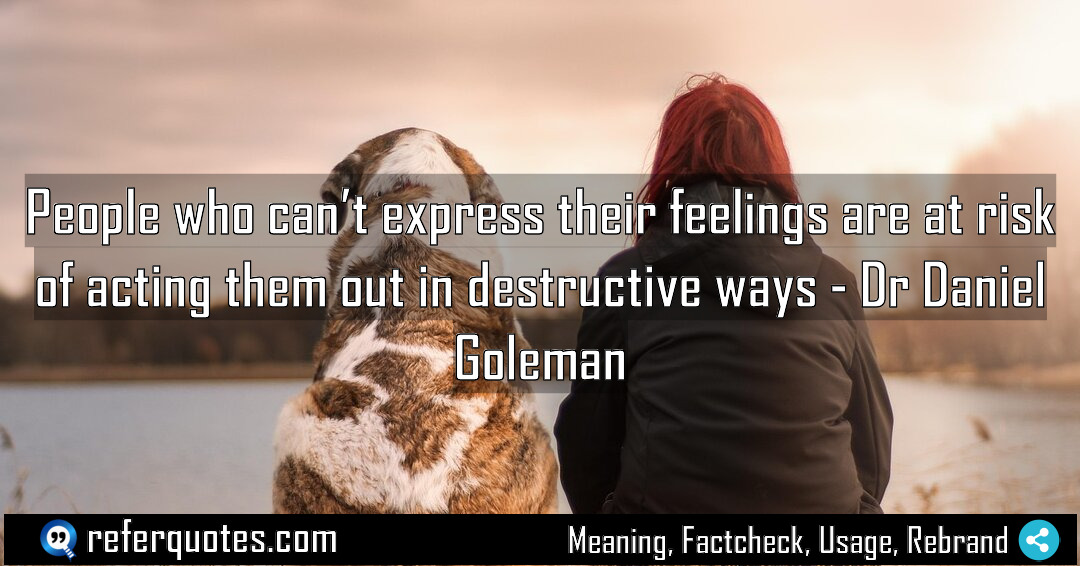You know, “People who can’t express their feelings are at risk…” is such a powerful truth. It explains so much about workplace blow-ups and personal conflicts we see every day. It’s the core of why emotional literacy isn’t soft skill—it’s an essential one.
Share Image Quote:Table of Contents
Meaning
At its heart, this quote means that unspoken emotions don’t just vanish. They fester. And when they fester, they find a way out, often in ways that damage our relationships, our careers, and even ourselves.
Explanation
Look, I’ve seen this play out a hundred times. Think of emotions like steam in a pressure cooker. If there’s no release valve, that pressure has to go somewhere, right? It’ll eventually blow. That’s what Goleman is talking about. When someone can’t say, “Hey, that criticism really hurt,” or “I’m feeling incredibly overwhelmed,” that energy doesn’t just disappear. It gets channeled into passive-aggressive comments, a sudden resignation without warning, a snapping outburst over a tiny inconvenience, or even self-sabotaging behaviors. It’s not that they’re bad people; they just lack the vocabulary and the courage to release the pressure in a healthy way. Their feelings end up driving the car, and they’re just along for a destructive ride.
Quote Summary
| Context | Attributes |
|---|---|
| Original Language | English (3668) |
| Category | Emotion (177) |
| Topics | emotion general (105), expression (22) |
| Literary Style | clear (348), psychological (31) |
| Emotion / Mood | realistic (354), serious (155) |
| Overall Quote Score | 76 (131) |
Origin & Factcheck
This insight comes straight from Daniel Goleman’s groundbreaking 1995 book, Emotional Intelligence, which was published in the United States. You sometimes see similar ideas floating around, but this specific phrasing is Goleman’s. He really codified this concept for the mainstream.
Attribution Summary
| Context | Attributes |
|---|---|
| Author | Dr Daniel Goleman (50) |
| Source Type | Book (4032) |
| Source/Book Name | Emotional Intelligence: Why It Can Matter More Than IQ (54) |
| Origin Timeperiod | Contemporary (1615) |
| Original Language | English (3668) |
| Authenticity | Verified (4032) |
Author Bio
Daniel Goleman is a psychologist and bestselling author whose journalism at The New York Times brought brain and behavior science to a wide audience. He earned a BA from Amherst and a PhD in psychology from Harvard, and studied in India on a Harvard fellowship. Goleman’s research and writing helped mainstream emotional intelligence, leadership competencies, attention, and contemplative science. He co-founded CASEL and a leading research consortium on EI at work. The Daniel Goleman book list includes Emotional Intelligence, Working with Emotional Intelligence, Primal Leadership, Social Intelligence, Focus, and Altered Traits.
| Official Website
Where is this quotation located?
| Quotation | People who can’t express their feelings are at risk of acting them out in destructive ways |
| Book Details | Publication Year: 1995; ISBN: 978-0553375060; Last edition: 2005; Number of pages: 352 |
| Where is it? | Chapter: Emotional Literacy, Approximate page 134 from 2005 edition |
